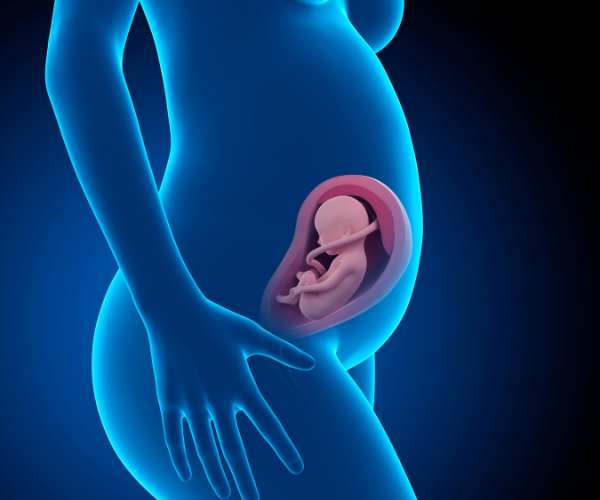What Is Depression During Pregnancy?
Depression in pregnancy or prenatal depression is among the potentially severe mental complexities that many mothers to be have to deal with. It must be clear that this is not merely being “down” or the nip and tuck of mood changes that usually accompanies pregnancy. Rather it is more like a Prevailing inferiority complex such as consistent sadness, withdrawal or lack of interest and general despair which interferes with an individual’s day to day life. This can happen to pregnant women during any season, but the symptoms tend to be more common in the first and second trimesters.
In short people might say that depression lies on a continuum, some feeling slightly affected and some severely depressed and according to ACOG a seventh American woman has to deal with in case during her pregnancy. This condition is just as real and impactful as any physical illness, and hence it is important for them to identify its signs and symptoms and seek assistance.

Specialized Care for Pregnant Women with Depression
Involving multiple doctors in treating depression during pregnancy is lifesaving. Pregnancy doctors alone are not sufficient (these are the doctors who manage pregnancy and childbirth), managing and treating expectant mothers who are depressed needs the involvement of qualified professionals, such as mental therapists, psychologists and psychiatrists. Their purpose is to provide a complete service that acknowledges the mobility and fitness of the emotions and health of the person.
Involving obstetric healthcare professionals allows for keeping track of the physical aspects of the pregnancy to ensure the mother and the baby are okay. At the same time, therapists help in shaping the coping mechanisms of the patient and aids in brain functions. This indicates that perinatal depression is indeed a multifaceted condition that warrants medical as well as mental assistance.
Signs of Depression for Depressed Expecting Mothers
The initial step in getting treatment for expectant women suffering from depression is by taking note of the signs. Generally, a woman can become depressed during pregnancy in the following manners:
- Chronic Unhappiness: A permanent feeling of emptiness and despair which frequently consumes the individual and makes them feel as though they are carrying a huge burden which has no outlet to be let go.
- Absence of Pleasure: Activities that one loved doing or found engaging in the in the past, like spending time with friends or even preparing for the baby may now lose the excitement it had before.
- Bonding with the Pregnancy can be Difficult: There are some expecting women who form a connection with their fetus while others do not feel sad or excited about the baby during pregnancy due to a medical condition known as prenatal depression.
- Appetite or Sleeping Patterns Might Change: Some women could have an increased appetite some might have no appetite at all. Disturbances in sleep are normal for many around the world and most have trouble falling or staying asleep.
- Guilt or Worthlessness: By saying “I am not a good mother” or “I am failing at this pregnancy” within thoughts reinforce the disturbed emotions even more.
There is something serious, and Only an experienced Healthcare Provider can help if you or your known one has these symptoms. Research depicts that pregnant women suffering from depression and without treatment can have severe effects on the baby, therefore it is essential to seek help at the right time.
These Are Complications That Come With Depression During Pregnancy:
Having Depression During Pregnancy: There Are Several Complications that can arise including preterm Babies amongst women who have depression and even depression before pregnancy which when ignored increases the likelihood of resulting in having a preterm baby. So children who are born from such women have lower birth weight and their growth could be delayed.
- Low Birth Weight: More often than not, depression in a mother leads to low birth weight, putting strain on a baby’s weight and further leading to health and developmental issues.
- Increased Risk of Postnatal Depression: Maternal depression augments the likelihood of postnatal depression and thus making it harder for mothers after the birth of a baby.
- Impact on Baby’s Development: There’s a consensus that depression during pregnancy leads to impaired growth potential of a baby in numerous domains such as emotional and cognitive functions.
The findings from all these complications highlight the need to initiate prenatal depression treatments at the earliest opportunities as it helps in reducing the risks of complications in the earlier stages.
Duration of Prenatal Depression
Most of the studies suggest that during pregnancy depression can last for a few months or even weeks in some cases. However, it can also extend longer into motherhood without receiving the necessary support. In some women it can remain as a constant across all trimesters whilst in others it can be more significant at different stages of pregnancy.
Let us start by verifying some of the facts inherent in this statement. The degree of concern also affects the duration of depression. Depression in women who get effective treatment early is short-lived. But if the depression goes untreated, then the associated symptoms are long-standing.
What Are The Factors Leading To Depression In An Expecting Woman?
The reasons for PreNatal depression are multiple and does not have a single cause Some of the more common ones include:
Pregnancy-Spend some time to familiarize yourself with pregnancy: It is known for pregnancy depression or postpartum depression hints of menstruation and hormonal change as an underlying factor for it. Changes with postpartum depression often include an emotional imbalance leading to difficulties in coping such as anxiety and even depression.
A Woman’s History Of Depression: A past history of depression is a risk factor for depression in pregnancy. Individuals with a personal history of depression or if a woman has depression in her family are most likely to experience this along with women with a history of depression.
Low Support: Pregnancy is a very sensitive time for a woman. A secure network is critical for emotional support. Women who are cut off from their support networks – be it through tension-filled relations, isolation or absence of family support – are more prone to develop depression.
Stressful Life Situations: It is common during pregnancy to have stress over finances, dysfunctional relationships, and work related issues which can cause or worsen depression. It is advisable to the woman remember that during this phase self-care matters and seeking the right kind of help is never a bad idea.
Considering Prenatal Depression
There are general steps that should be followed throughout pregnancy and the prenatal period in order to cope with depression. Although depression is a serious disorder that cannot be entirely avoided during pregnancy, one can take measures which reduce the risks. As a suggestion:
1. Develop a strong social network – Making friends and engaging with family members or a partner who offers support will assist in the emotional struggle of talking to someone who is willing to listen and care.
2. Employ self-care: These techniques include meditation, yoga, and journaling which leads to a decrease in stress levels and enhances emotional wellbeing. Most importantly, these practices have been evidenced to minimize the chance of getting the depression during pregnancy.
3. Do engage in regular prenatal visits: Routine checkups with your healthcare provider, mentally as well as physically, are highly recommended for you and your baby as depression can be picked up at an early stage by the doctor.
4. Start seeking therapy when required: Cognitive Behavioral Therapy is one of the most sought treatments for prenatal depression. Most therapists recommend speaking to someone who specializes in prenatal care to address issues before they arise, rather than waiting.
It is vital to note that these aforementioned pointers, when heeded to well, are likely to not only prevent but also tone down depression.
Pharmaceuticals for prenatal depression
Sometimes, taking drugs becomes essential in tackling prenatal depression. Pregnant women are prescribed SSRIs or selective serotonin reuptake inhibitors amongst other drugs, although risks are attached. In this regard, it is important to first talk to your healthcare provider about the merits and demerits.
Some studies conducted by National Institutes of Health (NIH) show that, with proper healthcare supervision, some drugs are safe for use when pregnant. Still, the use of drugs should be closely monitored depending on the specific conditions of the mother and any consequences on the baby.
Therapies available for depression during pregnancy:
Pregnancy is a period where most women are at risk of developing depression and some of the ways to tackle this are;
- Therapy: out of the many available procedures, the most effective seems to be cognitive behavioral therapy (CBT) and such forms of therapy help women develop appropriate negative thoughts and behaviors that help fight depression.
- Medication: In higher severity, antidepressants restore the chemical balance in the brain.
- Support from loved ones: family, friends, and support groups can provide the emotional support needed to navigate this challenging time. There is a lot of comfort in talking to someone who understands and this has a huge impact in getting rid of the feeling of loneliness.
- Relaxation Techniques: There are multiple wholesome techniques that can be employed to induce better balance into the life of the person. Prenatal yoga, meditation and breathing exercises can all go a long way in resolving stress.
Recognizing and Treating Depression During Pregnancy
Pregnancy is an important time in a woman’s life as there are a lot of physical, emotional, and spiritual transitions. There are instances where a woman is not able to cope well with pregnancy due to depression and other such situations. For expecting mothers it is important to understand that experiencing depression and other such mental conditions is easily underdiagnosed and considerably more frequent. There is nothing to be worried about as several treatment options are available. A few of them include talking to a therapist about your pregnancy experience or taking anti-depressants. Prenatal depression is fairly common and women do not have to go through it alone. In this subsection, the necessary information such as symptoms, causes, treatment options, and useful resources in order to tackle depression in females shall be discussed.
Help Your Woman Out: Look Out For The Symptoms, Understand The Causes, Evaluate The Treatment Options
Pregnancy can be correlated with several mood changes, instances including but not limited to constant feeling of sadness, lack of interest in certain activities, and irritability which can lead to depression. Identifying the signs of these mood swings, determining the root cause of each, and understanding which treatments are available to assist women in conquering their feelings can provide clarity.
Depression During Pregnancy: Identifying the Symptoms
Certain symptoms should be identified by expecting mothers and their partners in order to seek essential help. A few include persistent feelings of sadness, and having outbursts and arguments. While feeling emotionally charged is common during this period of time, these things can become overwhelming, and rather detrimental.
It can be said that there are instances such as sad feelings or hopelessness that make oneself completely exhausted. This aspect also affects well-being. Even the thought of enjoying infrequent and unique moments such as pregnancy can fly out of the window in an instance.
The body during pregnancy is very prone to mood swings but they should not escalate to extreme irritability or frustration, otherwise the chances of having depression increase.
For instance, being overly exhausted while at the same time not being able to sleep at all is one effect of having depression. This scenario is okay for everyone to an extent, but once it starts affecting one’s emotional or physical stability it becomes a problem and should be dealt with.
Just like not sleeping or feeling hungry at all, feeling unusually hunger more than usual during pregnancy can be a symptom of depression rather than normal pregnancy cravings.
Being overly worried about something, and as a result experiencing panic attacks is a feeling that should be avoided, especially when pregnant. In other cases, feelings such as these should be dealt with because if not they worsen depression.
Which factors cause depression during pregnancy?
The body is going through so many changes during pregnancy: hormonal, emotional, and social. But, more often than not, women lose their battles against these changes which results in depression. In order to detect and control the aspects and triggers of depression, both health care workers and expectant mothers have to be on the lookout.
Pregnancy is when the body goes through a number of dramatic transformations, chiefly in the first and second trimester, and so various hormones fluctuate. These fluctuations can impact one’s emotional stability leading to instances of sadness or anxiety.
If a mother has suffered from depression in the past, or has witnessed a relative with depression, she is at an increased risk of suffering from prenatal depression. Genetics do have a role to play in mental health.
People who do not have a support system in place are more likely to suffer from depression. So women who do not have friends or family, or a partner to support them can be at risk of suffering through a more challenging emotional state.
There are periods in life that can be stressful, such as a marriage or work, and these life events can add more distress to a pregnant woman. Pregnancy can be tough for a lot of people due to the overwhelming stress causing more depression.
Treatment Options: Living with Depression while Pregnant
Pregnancy depression must be addressed since it can have a negative impact on both the mother and the baby. Alterations in one’s lifestyle accompanied with therapeutic practices and in some cases medications are able to help regulate the symptoms.
- Therapy: Cognitive Behabioural Therapy (CBT): CBT is a fully documented and recognized method for treating depression. It is about recognizing the negative thought and replacing it with a healthy one. This type of therapy is quite effective for pregnant women as it can be performed individually and as a part of a group offering much-needed assistance.
- Medication: Antidepressants: There are times when more severe measures must take place in order to combat the depression and that is including the use of depressants especially when treating the severe states of this disorder. What however good practice is to weigh in the pros and cons with the doctor in order to come to a more informed decision. Some of the medications such as selective serotonin reuptake inhibitors are deemed comparatively safe while on pregnancy . It is ideal medication decision should always be made with a doctor.
- Lifestyle Changes: Exercises, good diet and Rest: When coupled with enough rest, consistent exercise and a proper diet can help attain better mental health. Exercising can help lift up a person’ mood and the best way to achieve it is to practice walking or even better prenatal yoga . Maintaining a proper diet and enough sleep every night can greatly enhance emotional balance in the body especially during pregnancy.
Depression And Pregnancy FAQs
Where is the stigma towards pregnant women suffering from depression kick in?
What are some myths about depression in childbearing women? Dismantling the myths is important because Women who seek assistance suffer greater stigma.
Myths relating to Pregnancy and Depression that need to be addressed
- Some people say: During pregnancy, depression is just a state of hormones which will ultimately pass and it’s nothing to worry about.
- Correction: It is true that hormones are responsible for a lot of feeling but to say that depression during pregnancy is one of them is incorrect as this is a health issue which requires treatment similar to some other illnesses. It is also not something that eventually gets better with time therefore neglect can harm the mother and baby.
- Some people say: Depressive pregnant moms shouldn’t be using medication as it will negatively affect her child.
- Correction: Yes it is true that some medications can be harmful but using those medications isn’t the only option. Despite the risks involved with medication being pregnant can be worse for both the child and the mother especially if her health is relatively better. A thorough discussion with a medical practitioner is crucial before taking any drastic decisions.
How to manage relations in a family during pregnancy and while being depressed
Pregnancy can invoke a lot of different emotions such as happiness, sadness and anxiety, therefore it is important to keep a family in these hard times.
Inner Strength: Developing a stronger Mind during a Depression while being pregnant
If you’re pregnant and suffering from depression letting the emotions get a hold of you is the last thing that you want to do.Utilizing this time to create a stronger mind will help bolster your resistance and help you greatly in the future.
It’s helpful to think about things with a positive perspective. Self-kindness is a core element of self-compassion. Sometimes life is tough, and we need to remember to be nice to ourselves during such experiences. Some mindfulness activities, for example guided meditations, deep breathing, and even some visualization exercises, can ultimately assist in focusing and relaxing one’s mind therefore increasing emotional strength.
Every individual is unique. Enjoy engaging in activities that you love especially if it’s exercise, painting, or dancing, among many other hobbies. These activities boost emotional welfare. Positive activities such as these are recommended because they tend to help shift concentration from negative thinking.
Spiritual Wang When Nothing Seems to Work During Dark Days
Many women opt for prayer during pregnancy. Whether it’s through prayer, meditation, or a spiritual community, depression can be fought in many ways. It is crucial to have inner calmness since it is a key factor in fighting depression.
Spiritual practice is something such as prayer or meditation that many pregnant women have turned to. Prayer is one of the most important activities in the life of many pregnant women, it helps them to relieve stress and feel calm. Methods such as these ease anxiety and have a screening effect on one’s mind as well as the entire body.
Being actively involved in spiritual communities or being part of such groups does also help a lot. The sense of hope generated from being part of people with similar beliefs is priceless to many women. Being part of spiritual support groups encourages a feeling of community and are a huge source of positive emotions.
FAQs: Answering Most Asked Questions About Depression During Pregnancy
Are pregnant women likely to develop depression?
The reality of a pregnant woman with depression is much more common than people tend to acknowledge. Studies reveal that about around 14% of women get to be depressed in pregnancy over a time frame. The numbers are even higher in women who have a history of any mental health disease such as depression or anxiety disorders. This statistic emphasizes the need of attention and treatment. Depression during pregnancy cannot be consider as a mere hormonal change as it requires a lot of consideration.
Example: A self-reported history of depression is more likely to make a woman depressed during her pregnancy. Postpartum deferring is very likely to happen according to the American Journal of Obstetrics and Gynecology when a woman is pregnant and has a history of depression. Women who didn’t report depression were less likely to show reported pregnancy depression signs.
Can depression throughout my pregnancy harm my unborn child?
Yes, if left untreated, depression that occurs during pregnancies bears great repercussions for the mother and her child. As documented by research, ignoring depression heightens the chances of preterm births, low weight at birth, and even incapacity in the infant. This is why patients in such conditions should not hesitate in getting hold of the assistance of a healthcare provider so that the situations can be brought under control.
Statistics: As previously noted, mothers suffering from depression throughout pregnancy possess a bigger chance of experiencing premature births accompanied with low weight at the time of birth, according to NIMH. In fact, mothers that do not seek treatment for depression are statistically 1.5 times more likely to still give birth but earlier than expected according to a study published in JAMA Psychiatry.
Example: One observational case study observed a woman with untreated depression, who ultimately resulted in giving birth to a baby at 32 weeks, which is considered to be preterm. The baby underwent some delays in his or her development but all in all the situation was reversible. However, with prompt care in controlling one’s depression this possibility of risk should have been reduced by a great amount.
Can Pregnant Women Safely Take Antidepressants?
Of course, pregnant women can use certain antidepressants, but these should be prescribed by a provider who knows their medical history and understands the risks and advantages involved. Doctors are always warning of the risks of some antidepressants to babies whilst noting there are low-risk drugs. Overall, a blood serum drug level measuring probe is recommended to rule out any drug toxicity, dangerous abuse of SSRIs such as fluoxetine are also on this list.
At its best, during a controlled medical prescription regimen which also provides several antenatal interventions, SSRIs have proven to be the most effective under risk management during the entire time of gestation as well as after, this however still does not exclude potential side effects from being transferred after birth and so they are closely monitored afterwards.
Therapists also often suggest CBT prior to further medication prescribing whereas mild depression has a good response, severe depression opt for fluoxetine but wait for the patient to respond.
What assistance is offered throughout the pregnancy, including postnatal depression?
Women suffering from depression within their gestational time have a lot of support around them. Relations, forums, and therapists were and are of great assistance. Resources such as Postpartum Support International or forums for pregnant mothers, thanks to the internet, have a rich source of education, therapy, and group focus on trauma specifically aimed at mothers to be.
Table: Support during the Period of Pregnancy
| Resource Type | Example | Details |
|---|---|---|
| Support Groups | Postpartum Support International | Provides access to online resources and support through groups and forums. |
| Therapy | Cognitive Behavioral Therapy (CBT) | Professional help in managing crisis situations, such as dealing with depression. |
| Family Support | Partner or Family Counseling | Encourages meaningful conversations with family members for emotional comfort. |
| Online Communities | What to Expect Forums | A platform offering advice, experiences, and support from other parents. |
These forums are quite helpful for other expecting mothers who are facing such situations.
For instance, many women report that by engaging in online forums and communities specific to mental health within pregnancy makes them feel more normal and provides them with a connection to other women undergoing the same issues in life, which gets rid of a lot of stigma.
Is it possible to fight through depression without using medicines during pregnancy?
It’s valid to say this: Yes. There is a nullity in considering help from medication. Most of the women class after undergoing therapy, changing their lifestyle, and getting ample support from psycho alludenes, assert themselves as cured.
Conclusion
Depression during pregnancy is a complex and often misunderstood condition that significantly impacts the well-being of both the mother and the baby. Far beyond typical mood swings, prenatal depression encompasses persistent sadness, withdrawal, and emotional challenges that can complicate daily life. Recognizing the symptoms early and seeking professional care is crucial. Combining the expertise of obstetricians, therapists, and support systems can provide a holistic approach to managing this condition.
From therapies like CBT to lifestyle changes and, in some cases, medications, there are multiple effective strategies for addressing prenatal depression. By fostering a strong support network, embracing self-care, and consulting healthcare providers, expectant mothers can navigate this challenging period with resilience. Remember, seeking help is a vital step in ensuring a healthy pregnancy and fostering a positive environment for both the mother and the baby.






